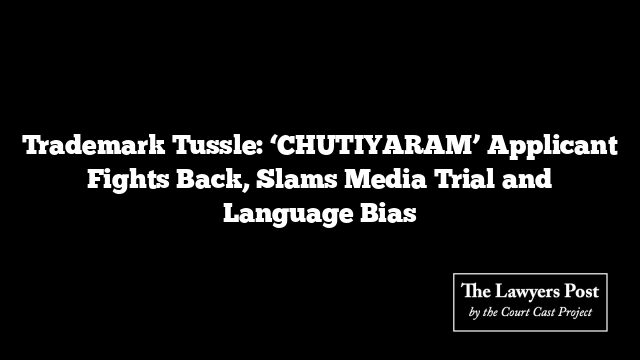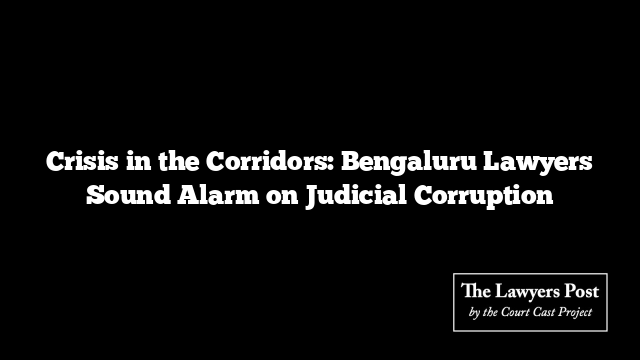The battle over a controversial trademark has taken an unexpected turn, as the applicant behind ‘CHUTIYARAM’ fires back at what she calls a media-fuelled takedown and systemic disdain for Hindi and other vernacular languages.
Sadhna Goswami, who had applied to register the term under Class 30 of the Trade Marks Act, is challenging the Trademark Registry’s abrupt about-face. Initially accepted, the trademark was later yanked back with officials citing a clerical “error.” But Goswami isn’t buying it.
In her written response, Goswami squarely blames what she calls a “reckless media trial” for the reversal. Outlets, including Bar & Bench, have been accused of whipping up public outrage and painting the approved mark as obscene without understanding its context. According to her, this was less about law and more about optics.
“The media sensationalized the mark’s acceptance, targeting it in a campaign devoid of nuance,” the filing asserts.
The Registry’s withdrawal came just a day after the mark was published in the Trademark Journal—suspicious timing, says the applicant. Goswami contends the registry caved under pressure, instead of standing by what was originally deemed a distinctive and non-offensive mark by its own examiner.
What’s in a name? Quite a lot, it seems. Goswami explains that ‘CHUTIYARAM चुटियाराम’ is a blend of “Chutiya,” derived from “Choti” (a sacred Hindu hair tuft), and “Ram,” referencing Lord Rama. She argues the word is steeped in cultural and religious symbolism—not slang or vulgarity, as critics suggest.
“The mark represents spiritual heritage,” she says, pushing back against assumptions rooted in linguistic bias. “It is not derogatory—it is devotional.”
The case has also sparked broader allegations. Goswami claims the Trademark Registry is institutionally skewed against Hindi and other Indian languages. The digital filing system, she points out, doesn’t even support Hindi scripts, forcing applicants to transliterate words into English. She calls this a “colonial hangover” that stifles linguistic diversity and entrenches inequality.
Her response also takes aim at the registry’s apparent double standards. She lists previously approved trademarks—names like “BOOB,” “LAUDA,” and “PUSSY IN BOOTS”—questioning why those sailed through while ‘CHUTIYARAM’ drew fire. The inconsistency, she argues, violates constitutional principles of equality under Article 14.
In a detailed plea, Goswami has urged the Trademark Registrar to do four things:
- Reinstate the approval of ‘CHUTIYARAM चुटियाराम’
- Acknowledge the undue influence of media sensationalism
- Recommit to an independent, law-based decision-making process
- Confront and rectify biases against vernacular languages in trademark evaluation
What began as a trademark application has snowballed into a larger conversation about freedom of expression, cultural representation, and the still-lingering colonial shadows in India’s legal frameworks.
And for now, the future of ‘CHUTIYARAM’ remains uncertain—but its battle lines are anything but unclear.





